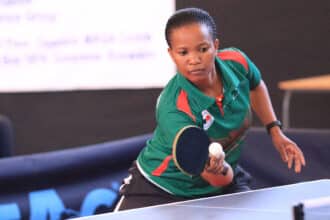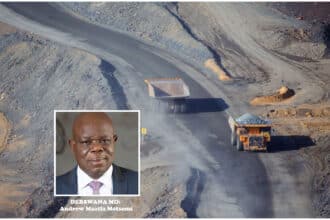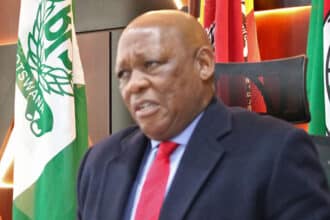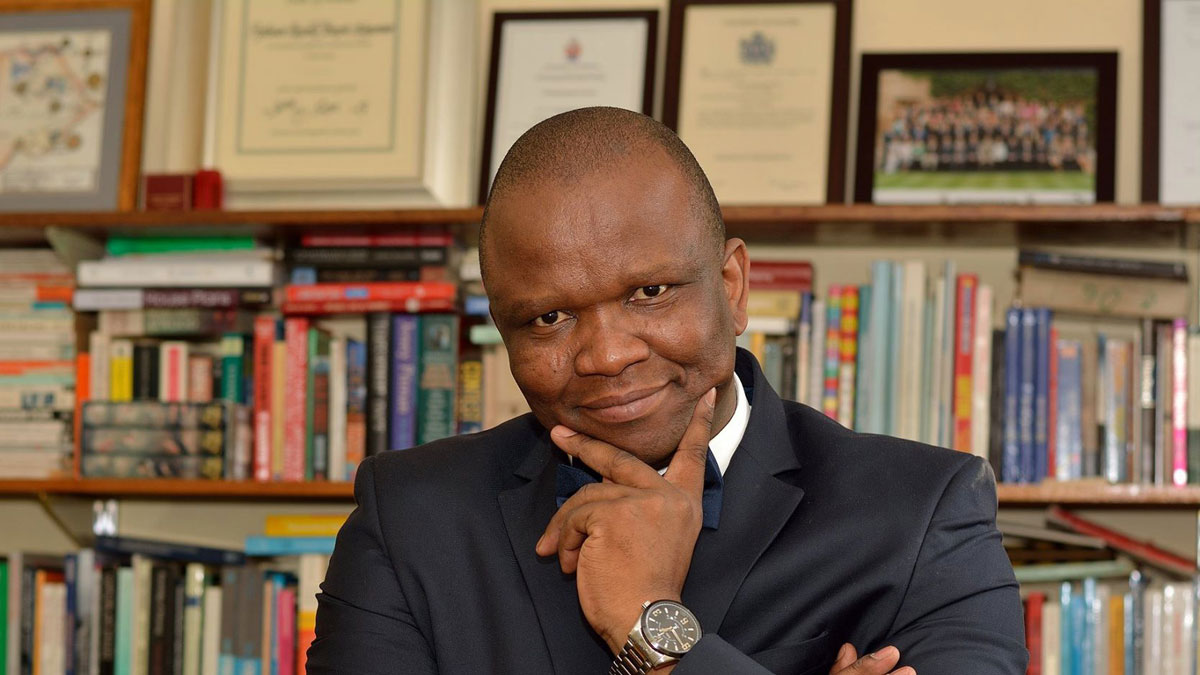A Nation without a culture is a nation without a soul, and at the core of that soul lies language.
From the language you speak, I can probably guess your origin.
Keyword there is probably, because a lot of us have abandoned our native languages and hopped onto English.
However, there are still some among us who have a burning passion for languages and are keen on preserving them.
Professor Thapelo Otlogetswe is among those, a seasoned linguist and lexicographer who has committed his life to unpacking and teaching languages.
The Voice’s Leungo Mokgwathi had a conversation with the Professor to learn more about his interesting line of work.
For our readers who have not yet heard of you, please introduce yourself.
My name is Thapelo Joseph Otlogetswe.
I am a Motswana linguist and lexicographer.
I work in the general field of language description and culture.
I am the current Deputy Dean of the Faculty of Humanities at the University of Botswana.
Which part of Botswana are you from?
I was born in Kanye and raised amongst bomalome kwa Goo-Ruele.
We later relocated to Mmamokhasi on the hillside of Kgwakgwe.
So, take us through your childhood in Kanye.
Give us a picture of Kanye and maybe even Botswana in those days.
I was raised in the drought-ridden 1980s when Botswana was very poor but rapidly developing under the excellent leadership of President Quett Masire, something which made me somewhat Masiresque in my world view.
The early years of my primary school I was raised by my grandmother – MmaNnese – while my mother was making a living in the sandy Jwaneng.
I remember this period as a rather harsh time of extreme poverty with most of us living on government rations from the local clinic and from school feeding.
Our family could only afford a single meal a day.
It was tough.
But it was a time when family was close, and people looked out for each other.
You are undoubtedly a very impressive and astute man, which schools can we credit to that?
I have very pleasant memories of my school days.
I started off at Segopotso Primary School then later moved to Motsatsing Primary School for my standard 7 where I was taught by the tough Mma Wadikgosi.
My JC was at Kgosi Mathiba CJSS kwa Ntsweng in Kanye.
I then went to Seepapitso Senior to do form 3, 4 and 5.
I did 5 years of BA and PGDE at the University of Botswana.
My Master of Philosophy was done at the University of Oxford.
I then moved to the University of Brighton to read for a PhD in corpus lexicography under the supervision of the legendary Adam Kilgarriff.
I later spent the final years of my PhD at the University of Pretoria after I added Professor Danie Prinsloo to my supervisory team.
Earlier, you mentioned lexicography and now corpus linguistics. Please explain what these are all about.
Corpus linguistics is a subfield of computational linguistics.
It concerns itself with studying language by analyzing databases (corpora) of natural occurring texts.
These are usually large – running into millions of words.
Lexicography is the art and science of dictionary writing.
I therefore bring computation power to dictionary writing.
Interesting stuff! So how did you get into lexicography and linguistics?
I have had a love for languages from an early age.
During the earlier years of my university life, I studied French, Setswana and English before I did a single major in English.
My linguistics journey was very much influenced by Joseph Tsonope, the writer of Thanodi ya Setswana, and Andy Chebanne, who is Botswana’s finest linguist by far.
My work in Setswana linguistics and primarily Setswana lexicography is out of need.
I am one of the few people in the world working in Setswana lexicography.
We are no more than five in the whole world.
Please outline some of the work you have done along the lines of linguistics and lexicography?
I have written over ten books.
Amongst these are: Diane, Maele, Mafoko, le Dithamalakane (2021), Oxford Setswana-Seesimane English-Setswana Thanodi ya Dikolo School Dictionary (2020).

Dipoeletso-ditumamodumo tsa Setswana: A dictionary of Setswana alliteration and Consonance (2015) Oxford English Setswana English School Dictionary (2013), Tlhalosi ya Medi ya Setswana (2012)
If at all your line of work emanated from passion, where did that passion for languages, particularly Setswana come from?
In 2000 I was doing my Master of Philosophy at Oxford.
I used to attend Oxford University Press language seminars organized by Penny Silva.
Most people who attended these were pensioners interested in the history and nuances of the English language.
This made me think seriously about my contribution to my own language, Setswana.
I decided then at Lincoln College, Oxford on Turl Street that I will spend the rest of my life developing and promoting Setswana.
I just don’t do what I do out of simple passion.
My work is key to the development and promotion of Setswana.
How would you measure your level of fluency when it comes to Setswana?
I am super good in Setswana!
How many languages do you speak?
Not many actually.
I speak Setswana, English, Southern Sotho and a bit of French.
What is the research process behind adding new words and writing definitions as a lexicographer?
Oh my God!
That is a long process that includes computational work of frequency profiling, concordances, collocations, and semantic work of deciding on polysemy and homography.
Besides writing dictionaries and teaching Setswana, what are your other interests?
Music! I used to play lead guitar for over five years during my university years.
I therefore love music very much.
Mention your favourite book and what it’s about. Why is it your favourite?
The Surgeon of Crowthorne: a tale of murder, madness, and the love of words by Simon Winchester is an excellent book which details how a large part of The Oxford English Dictionary was contributed by a Yale trained doctor, who was an inmate at a psychiatric asylum.
The book was later published in the United States as The Professor and the madman.
Considering how famous English has become in Botswana, how come you’re all about Setswana?
I too love English – remember I am a single major English graduate from UB.
Setswana is an essential element of Batswana culture.
We lose it; we lose our very soul.
Can you say Setswana is dying?
No! It is not dying.
It is going through a lot of changes and challenges.
It is far from dying.
It is quite a vibrant language in numerous domains.
Tell me about the Botswana you dream of.
I dream of a Botswana which values and prides its languages and cultures – which is not too quick to embrace foreign cultures with their inherent weaknesses.
How many hours a day do you spend reading and studying?
On average about four to six hours.
Most of those hours are spent on writing.
Finally, thank God it’s Friday, what do you have planned this weekend?
I usually spend my weekends in the farm doing all sorts of work that is different from the kind of work that I do midweek.





